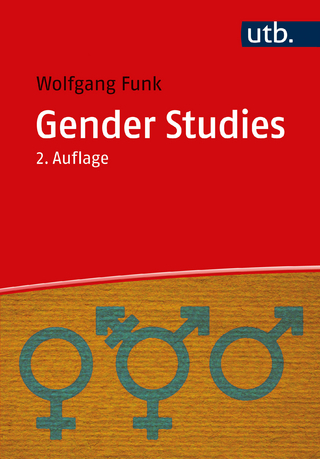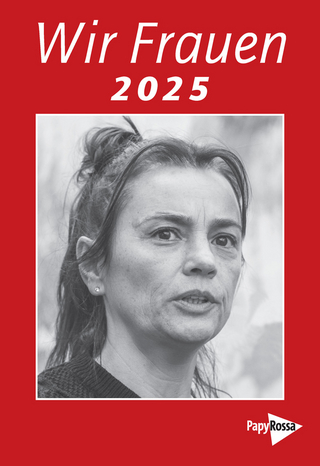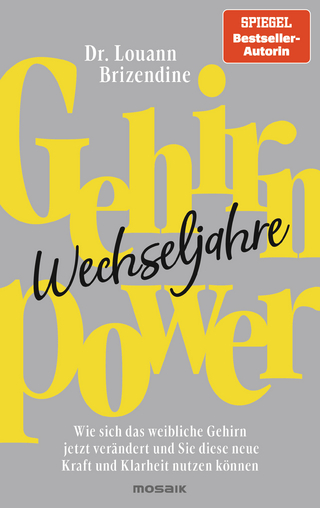Jugendstil Women and the Making of Modern Design
Bloomsbury Visual Arts (Verlag)
978-1-350-08852-8 (ISBN)
Lese- und Medienproben
Jugendstil Women and the Making of Modern Design argues that women in fact actively participated in the cultural and socio-economic exchanges that generated German design responses to European modernity. By drawing on previously unpublished archival material and a series of original case studies including Elsa Bruckmann's Munich salon, the Photo Studio Elvira and the Debschitz School, the book explores women’s important contributions to modern German culture as collectors, consumers, critics, designers, educators, and patrons.
This book offers a new interpretation of this vibrant period by considering diverse manifestations of historical female agency that pushed against historically entrenched conventions and gender roles. The book’s rigorous approach reshapes Jugendstil historiography by positing women’s lived experiences against dominant ideologies that emerged at this precise moment. In short, the book advocates women as an integral part of the emergence, dissemination and reception of Jugendstil and questions the deeply gendered histories of this key period in modern art, architecture and design.
Sabine Wieber is a Lecturer in History of Art at the University of Glasgow, UK.
List of Figures
Acknowledgments
Introduction: A New Style for a New Age?
0.1 Modern Women
0.2 The Cultural Geography of Munich around 1900
0.3 Munich – Berlin
0.4 Prince Regent Luitpold
0.5 The Term Jugendstil
0.6 Chapters Summary
1. Maker: Margarethe von Brauchitsch and the United Workshops
1.1 Introducing Margarethe von Brauchitsch
1.2 The Vereinigte Werkstätten für Kunst im Handwerk
1.3 The Kunstsalon Littauer 1896
1.4 The ‘Seventh International Art Exhibition’ at the Munich Glaspalast
1.5 The United Workshops and Margarethe von Brauchitsch
1.6 A New Direction for Embroidery
1.7 The Materiality of Margarethe von Brauchitsch’s Embroideries
1.8 Interiors and Textiles
1.9 Machine Embroidery
1.10 Embroidery and Jugendstil Historiography
1.11 Was Margarethe von Brauchitsch a Jugendstil Woman?
1.12 Relegated to the Sidelines
2. Activists: The Elvira Photography Studio and Munich Feminist Politics
2.1 August Endell’s First Commission
2.2 August Endell and Munich Jugendstil
2.3 The Building and Its Facade
2.4 The Interior
2.5 The Patrons: Antia Augspurg and Sophia Goudstikker
2.6 Studio Photography in Munich around 1900
2.7 The Photo-Studio Elvira and Munich’s Women’s Movement
2.8 The Association for Women’s Interests (1894)
2.9 Going their Separate Ways
2.10 Jugendstil Experimentation and Political Advocacy
2.11 Postscript
3. Students: Education Women at the Debschitz School
3.1 The Debschitz School at Dresden
3.2 Hermann Obrist (1862-1927)
3.3 Wilhelm von Debschitz (1871-1948)
3.4 The Lehr- und Versuchsatelier für Angewandte und Freie Kunst
3.5 The Curriculum
3.6 Women at the Debschitz School
3.7 Art and Design Education in Munich around 1900
3.8 The Royal Applied Arts School (1868)
3.9 The weibliche Abteilung at the Royal School of Applied Arts (1872)
3.10 The Munich Women Artists’ Association and its Frauenakademie
3.11 Women at the Debschitz School
3.12 Emilie Butters (1879-1961)
3.13 Modernism’s Paradox
4. Patron: Fashionable Taste at Elsa Bruckmann’s Salon
4.1 Elsa Bruckmann (1865-1946)
4.2 Munich-Vienna: The Todesco Palais
4.3 Marrying into a Publishing Empire
4.4 The Bruckmanns’ New Headquarters
4.5 Munich-Glasgow: The Dining Room
4.6 Munich-London: Hermann and Anna Muthesius
4.7 Elsa Bruckmann’s Debut as Salonnière
4.8 A Brief History of Salon Culture
4.9 The Mackintosh Dining Room-cum-Salon
4.10 Salon Culture and Gender
4.11 Elsa Bruckmann’s ‘Enhanced Independence’
5. Reformers: Dressing the Part
5.1 What is Artistic Dress?
5.2 Künstlerkleider and German Dress Reform
5.3 Dress and Function
5.4 Fashion/Anti-Fashion
5.5 Maria van de Velde and Alfred Mohrbutter
5.6 Artistic Dress and Jugendstil Interiors
5.7 Health and Beauty
5.8 German Life Reform
5.9 Dress Reform and Germany’s Women’s Movement
5.10 Jugendstil Women and Dress Reform
5.11 Anna Muthesius and Else Oppler
5.12 Artistic Dress and the Department Store
5.13 The Kaufhaus Oberpollinger and the Warenhaus Hermann Tietz
5.14 Shopping
Conclusion
Bibliography
Index
| Erscheinungsdatum | 19.11.2021 |
|---|---|
| Reihe/Serie | Cultural Histories of Design |
| Zusatzinfo | 73 bw and colour illus |
| Verlagsort | London |
| Sprache | englisch |
| Maße | 156 x 234 mm |
| Gewicht | 530 g |
| Themenwelt | Kunst / Musik / Theater ► Kunstgeschichte / Kunststile |
| Sozialwissenschaften ► Soziologie ► Gender Studies | |
| ISBN-10 | 1-350-08852-8 / 1350088528 |
| ISBN-13 | 978-1-350-08852-8 / 9781350088528 |
| Zustand | Neuware |
| Haben Sie eine Frage zum Produkt? |
aus dem Bereich



